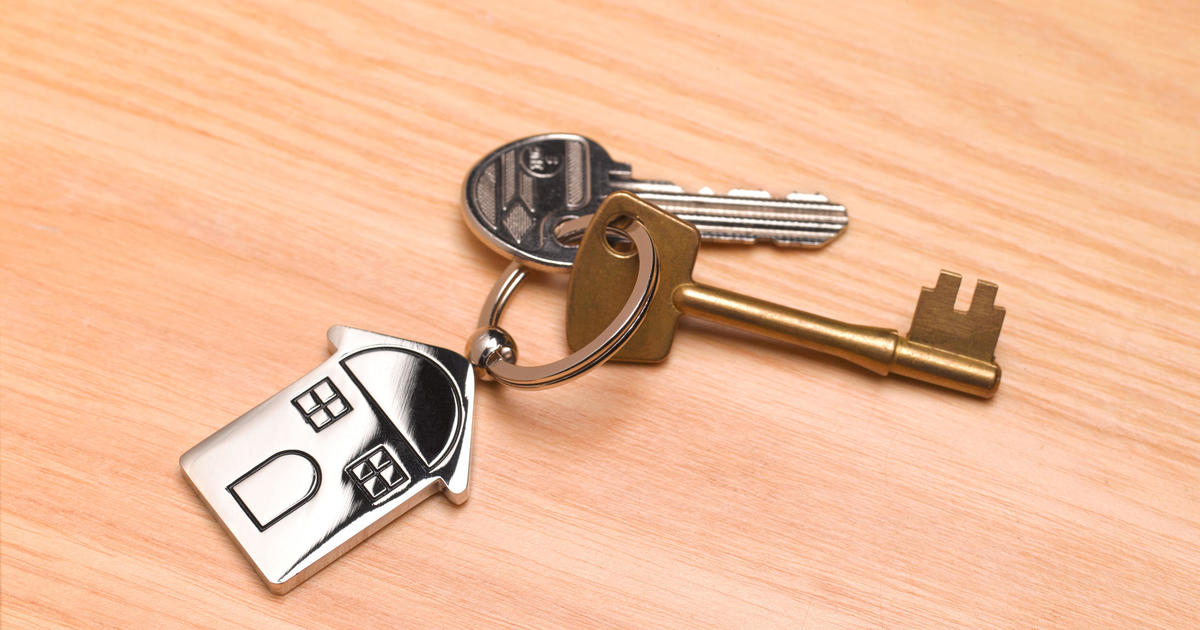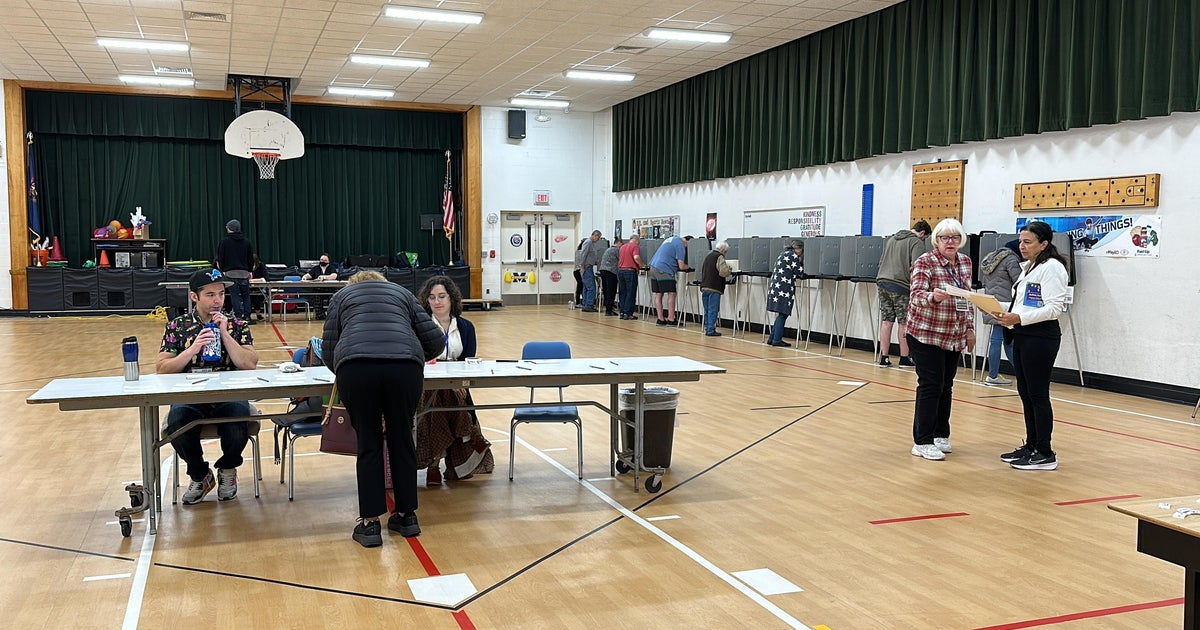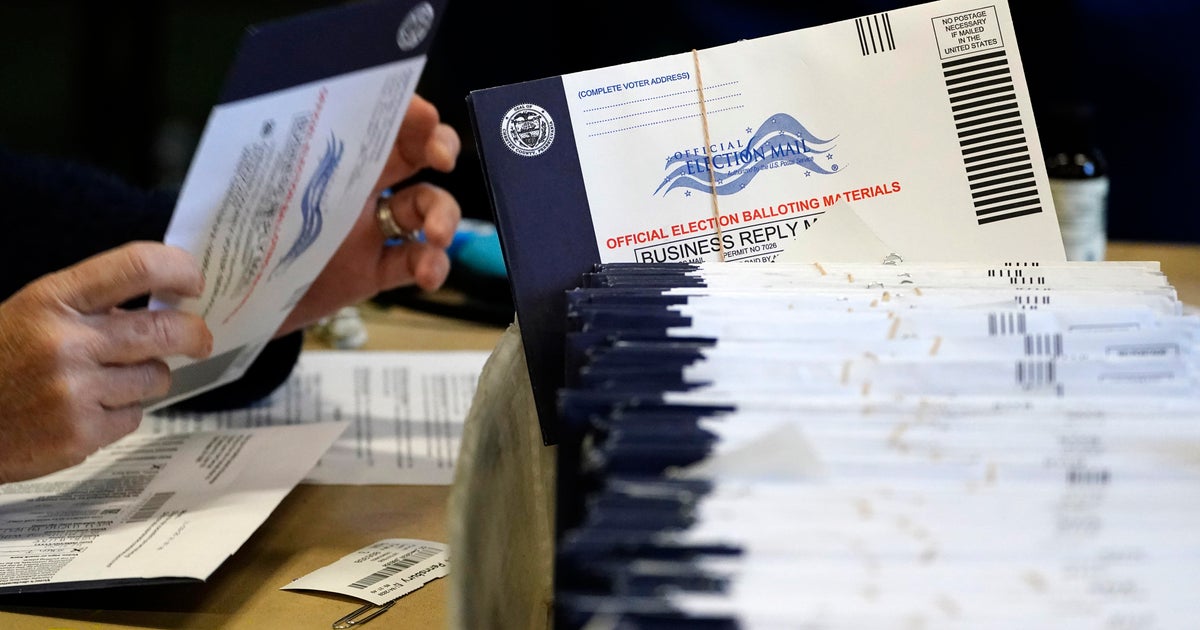CBS News
What not to do before closing on a house, experts say

Getty Images
Getting preapproved for your mortgage is only the first step in the homebuying process. And, while it can guide you toward an appropriate price range and help you make an offer on a home, it’s not a guarantee, by any means, that you’ll get approved.
In fact, there are actually quite a few things that could throw off your home financing entirely — even after you’ve made an offer and signed a contract on a house.
“Even with an accepted offer, the path to closing on a house can encounter unexpected twists,” says Matt Dunbar, senior vice president of the southwest region of Churchill Mortgage.
Compare your top mortgage loan options today.
What not to do before closing on a house, experts say
Want to make sure your home purchase is safe, and that you’re on track for a successful loan closing? Here’s what experts say not to do before closing on a house.
Let your credit score get away from you
Your credit score is a big player in your mortgage application. It helps determine whether you qualify for a loan and, if you do, what mortgage rate you’ll get. For this reason, it’s important to keep your credit stable as you move toward closing.
That means no taking out new credit cards and no new loans — both items that can ding your credit score considerably.
“Do not open up new credit cards or buy a new car,” says Jennifer Beeston, senior vice president of mortgage lending at Guaranteed Rate Mortgage. “New debt can turn your approval into a denial. It’s not worth the risk.”
You also need to take care to pay your bills — all of them — on time, every time. Payment history accounts for more than a third of your total credit score, so late payments can really hurt your application.
“Missing bill payments or making late payments can harm your credit score, making it harder to qualify for a mortgage or secure favorable terms,” says Matt Vernon, head of consumer lending at Bank of America. “Lenders use your credit score to evaluate your creditworthiness and determine the interest rate they offer, so a lower credit score due to missed payments could lead to higher mortgage costs over time.”
Learn more about the mortgage loan options available to you here.
Change jobs or work hours
Lenders want to see that you have steady, stable income with which to make your payments when buying a home, so any changes to your earnings can be a big red flag. If you can, avoid switching jobs prior to closing, and if you’re not salaried, try to keep your hours fairly consistent in the weeks leading up.
“Lenders may verify your employment and income closer to the closing date,” Vernon says. “Any changes in your employment status, such as switching jobs or a reduction in income, could impact your loan approval.”
In some cases, you might involuntarily lose your job before closing on a home. If this is the case, communicate with your lender as soon as possible. They can advise you on how to proceed — and what your new employment situation can mean for your loan.
“Losing your job involuntarily may also make it harder to qualify, although this may be out of a buyer’s control,” says Brian Shahwan, a mortgage broker at William Raveis Mortgage. “The general rule of thumb is before making any changes to your credit, asset, or employment situation, speak with your loan officer first.”
Make a big purchase or rack up credit card debt
Your debt-to-income ratio is another big influencer in the mortgage process. To keep yours steady as you head toward closing, avoid charging anything to your credit cards, as this increases your debt.
You should also avoid big purchases — even if they come out of savings. Remember: Lenders will be looking at your savings accounts and assets, as they want to know that you have backup funds if your financial situation should change.
“When you are committed to buying a home, the last thing you want to do is make a big purchase that could impact your personal financial picture,” says Elizabeth Dodson, co-founder of HomeZada, a home management platform. “Every move you make between the offer and closing will be closely scrutinized.”
Fail to respond or provide documents
Finally, the last big faux pas you can make is “ghosting” your lender, Beeston says. More than likely, your lender is going to have some questions and need additional documentation before it can close your loan. If you fail to provide this — and quickly — it could delay or even throw off your loan altogether.
“Do not ghost the lender,” Beeston says. “If your lender is sending you documents to sign, do not delay.”
If you want to keep your quoted mortgage rate and ensure you qualify for your loan, the best thing you can do is stay in close contact with your loan officer throughout the entire process. As Shahwan puts it, “Keeping an open line of communication with your loan officer is the best way to safeguard yourself to ensure the deal goes as smoothly as possible.”
CBS News
Fact checking Election Day 2024 claims about voter fraud, ballot counting and more

Throughout Election Day and night, CBS News’ Confirmed team will be fact checking reports of threats around voting today, voter fraud, election hacking, and more as the nation votes and waits to see whether Vice President Kamala Harris and former President Donald Trump will be the 47th president of the United States., CBS News’ full coverage of the election is here.
False: Elon Musk claimed Google intentionally manipulating search results in favor of Harris
X owner Elon Musk posted, then deleted, a screen recording comparing the Google searches. The post reached over 2.5 million views before its removal, with other posts garnering thousands of views.
Details: Google said searches for “where to vote for Harris” yielded a polling location map because Harris is also the name of a county in Texas, not because of bias for the Democratic candidate.
Searching for “where to vote for Trump” returned news articles and standard search results, while “where to vote for Vance” produced a similar polling locations map because Vance is the name of a county in North Carolina.
Google adjusted its algorithm Tuesday to prevent candidate-related queries from returning polling maps. Google trends data show that searching “where to vote” is a much more common query than searching where to vote for either Trump or Harris.
By Julia Ingram and Layla Ferris
False: Social media posts claim Milwaukee mayor, a Democrat, said the city’s votes would not be counted on election night
On X, users claimed that the Democratic mayor of Milwaukee said at a news conference that Milwaukee would not be counting ballots tonight.
Details: Votes in Milwaukee will be tabulated tonight despite posts on the social media platform X that have pushed a false claim that Milwaukee Mayor Cavalier Johnson said votes in the city won’t be counted on election night.
In reality, vote counting started Tuesday morning and will continue late into Tuesday night or early Wednesday morning at the city’s so-called “central count” location, according to Johnson’s communications director, Jeff Fleming.
“They’ve already started tabulating, and had tabulated thousands of ballots by this afternoon,” Fleming said. “The vote totals exceeded our original projections, so the workload at central count is higher than expected.”
Milwaukee’s votes can take longer to count for several reasons, Barry Burden, Director of the University of Wisconsin’s Elections Research Center, said.
“It’s the biggest city, and it has the most ballots, and it also counts absentee ballots at a central location,” Burden said. “That’ll be after midnight, 1 (a.m.) or 2 a.m.”
The city’s more than 200 election workers started counting votes at 9 a.m. Tuesday morning, Fleming said. They’ll continue the tabulation overnight, and ballots will be delivered to county clerks either the next day or the day after, depending on local rules.
By Chris Hacker
Spreadsheet error corrected: GOP U.S. House candidate says Harris County, Texas, early vote results showed big drops and spikes in early voting
U.S. House candidate Caroline Kane, a Republican running in Texas’ 7th District, posted on X Monday that Harris County’s early vote results showed significant drops and spikes in the number of early voters for several voting locations between Sunday and Monday, which should not be possible.
Details: Election officials said a misaligned spreadsheet caused the publicly reported early vote totals in Harris County to appear incorrectly. Local officials have corrected the document posted online by Kane. They noted the spreadsheet was labeled “unofficial” and said the error would not impact the official vote tally.
In a statement, the Office of the Harris County Clerk said, “In the process of updating the daily record of early vote totals for two vote centers (Baytown Community Center and Mission Bend Center), the formatting of the spreadsheet inadvertently misaligned, causing cells to shift and reflect incorrect numbers for other locations. Our office is aware and is actively working to correct the report.”
“I assure you that every vote that was cast will be accurately tallied,” the statement from the clerk’s office concluded.
By Jui Sarwate
Software malfunction prevented some voters from scanning ballots in Cambria County, Pennsylvania. Voting hours extended to 10 p.m. in the county.
Details: Local courts have extended voting hours from 8 p.m. to 10 p.m. in Cambria County, Pennsylvania after local officials said a “software malfunction” prevented voters from scanning their ballots early Tuesday morning.
Voters are using paper ballots as technicians review the issue.
“All votes will be counted and we continue to encourage everyone to vote,” the county commissioner’s office said in a press release.
According to the county’s petition to extend voting hours, the malfunction “caused voter confusion, long lines of voters, and many individuals left the polling locations without casting a ballot.
“The Pennsylvania Department of State said it is in contact with Cambria County and is “committed to ensuring a free, fair, safe, and secure election.”
Cambria County, located in southwestern Pennsylvania, has a population of approximately 131,000. Trump won the county 68% to 31% in 2020, and he won by a similar margin in 2016.
By Steve Reilly, Julia Ingram, Layla Ferris
False: Non-citizens encouraged to vote in Philadelphia
Conservative commentator James O’Keefe claimed non-citizens are being encouraged to vote in Philadelphia.
Details: Philadelphia officials said allegations by commentator James O’Keefe that non-citizens are being encouraged to vote are incorrect. O’Keefe posted a new video on Monday claiming Election Clerk Milton Jamerson and Ceiba, a local non-profit, advised voting with an ITIN number, regardless of citizenship.
The video received 1.6 million views on X as of Tuesday, and was reposted by conspiracy theorist Alex Jones, who said it was “the smoking gun of attempted election theft.”
Philadelphia City Commissioner Seth Bluestein said the report was incorrect and non-citizens are not eligible to vote in Philadelphia. ITINs are for tax purposes and not linked to voting eligibility. Ceiba called O’Keefe’s claims “unfounded and based on harmful stereotypes.”
By Joanne Stocker and Emmet Lyons
CBS News
Sen. Laphonza Butler on Harris campaign on Election Day 2024

Watch CBS News
Be the first to know
Get browser notifications for breaking news, live events, and exclusive reporting.
CBS News
Pennsylvania officials say “bad-faith mass challenges” target more than 3,500 voters

If the election in Pennsylvania is close, new challenges made to over 3,500 voters, many of whom live overseas and cast ballots by mail, could prove to be a pivotal part of the effort to undermine confidence in the 2024 election.
“Throughout the day Friday, several bad-faith mass challenges were filed in a coordinated effort in counties across the Commonwealth to question the qualifications of thousands of registered Pennsylvania voters who applied to vote by mail ballot,” the Pennsylvania Department of State said in a statement.
Most of the voters are individuals who live overseas and vote absentee under the Uniformed and Overseas Citizens Absentee Voting Act, a federal law that has allowed certain citizens living overseas to vote since 1986. This group of voters includes active military members, people who work abroad, and expats.
Additional challenges were filed questioning voters’ residency because they had a permanent mail forwarding address with the U.S. Postal Service.
“These challenges are based on theories that courts have repeatedly rejected,” the Pennsylvania Department of State said.
Josh Maxwell, chair of the Board of Commissioners in Chester County, said the elections office received hundreds of challenges from activists in his community based off USPS mail forwarding data. He believes the effort was made in an effort to deprive legitimate voters their right to vote.
“It’s about disenfranchising voters in a swing state and overturning the outcome of an election,” he said.
Many of these challenges arise from activists associated with organizations that say they focus on election integrity. In Chester County, the activist challenging votes claimed to be affiliated with the group PA Fair Elections in a video hearing last week. PA Fair Elections is part of a broader national initiative to scrutinize voter registrations and ballots, according to the progressive watchdog group Documented.
According to a report released to CBS News by Documented, PA Fair Elections is run by Heather Honey, an activist whose organization is known for her work to change elections procedures around the country.
Honey is the head of the Election Research Institute, and was involved in the controversial petition to the Georgia State Elections Board that would have made it easier for county boards to block the certification of elections, according to ProPublica. The rule has since been blocked by a Fulton County judge. Honey denies involvement in pushing the Georgia rule.
“Heather Honey is working as part of a well funded, nationally organized effort to manufacture election conspiracy theories, drum up thinly-sourced voter challenges and call the results into requisition when MAGA Republicans lose,” said Brendan Fisher, Documented’s deputy executive director.
PA Fair Elections denied any involvement in voter challenges in an email to CBS News. Heather Honey did not respond to a request for comment as of publication.
Aside from activist groups, several of the challenges to individual voters came from Republican State Senator Jarrett Coleman, who submitted challenges in Bucks and Lehigh Counties. The letter also says he submitted a $10 fee per voter challenge as required. Coleman’s office did not respond to CBS News for comment.
Now, counties with challenged voters must hold a hearing before the certification deadline on Nov. 12 about the status of these voters, which legal groups say is cause for concern. The ACLU sent an email to 67 county solicitors in Pennsylvania asking the officials to throw out the challenges to both groups of voters.
“Counties should formally dismiss or deny the challenges as quickly as possible to minimize any delay or disruption to the canvassing process,” the ACLU letter stated.
Both York and Chester counties have already rejected all the challenges.
Concern over overseas absentee voting has been amplified by former President Donald Trump, who posted on Truth Social in September that Democrats “are getting ready to CHEAT! They are going to use UOCAVA [Uniformed and Overseas Citizens Absentee Voting Act]
to get ballots, a program that emails ballots overseas without any citizenship check or verification of identity, whatsoever.”
Overseas absentee voting has become a rallying cry for self-described “election integrity” activists who claim individuals living overseas could be submitting fraudulent voter information. In the last few weeks, two lawsuits about overseas absentee voting have been thrown out in North Carolina and Michigan.
With the Pennsylvania challenges, election boards are the arbitrators, not judges.



